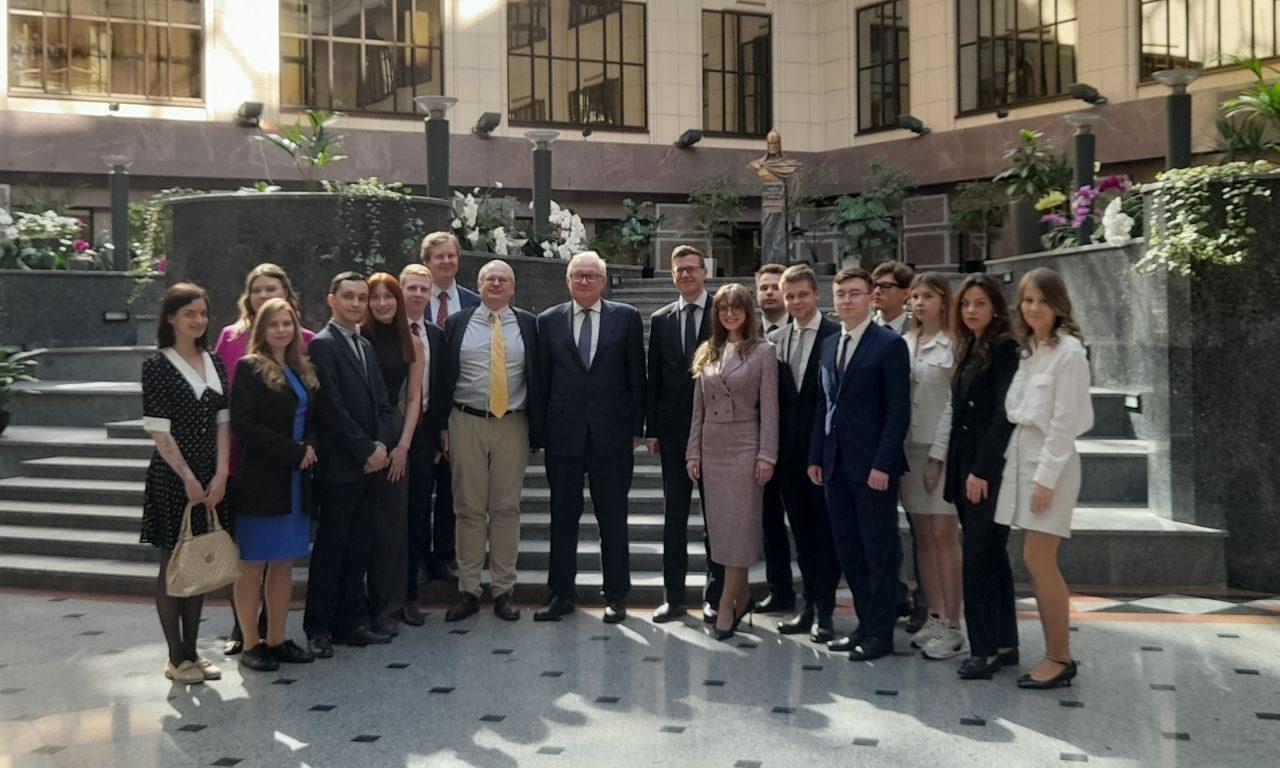MOSCOW. MAY 31, 2024. PIR PRESS. «There are many long-standing issues within the contemporary nuclear agenda to which more contradictions are being added. The situation is further worsened by the fact that there is no full-fledged interaction between the countries of the nuclear five, and there needs, at the very least, to be an elementary discussion that is objective and unbiased. Much of what Russia is doing now is being distorted. Much of what Russia suggests is being simply rejected. The Western nuclear three, represented by the United States, France and the United Kingdom, is not ready to cooperate with us. The United States decided to freeze the strategic dialogue with Russia many years ago. But Russia, in turn, does not agree to business as usual, considering the destructive policies of Western countries in the context of the Ukrainian conflict. Should this inspire a sense of hopelessness? The demand for highly qualified specialists in nuclear nonproliferation and arms control is increasing, especially when diplomacy faces new challenges, including artificial intelligence, which can negate an adequate perception of an opponent and understanding of their foreign policy aims. I can only welcome the educational initiatives of PIR Center, whether they represent meetings with students, the International School on Global Security or a new joint master’s program in international security with MGIMO. I am always glad to talk to young specialists», – H.E. Sergey Ryabkov, Deputy Foreign Minister of the Russian Federation.
On May 24, 2024, the Russian Foreign Ministry welcomed first-year students of the MGIMO Diplomatic Service Master’s program, meeting H.E. Sergey Ryabkov, Deputy Foreign Minister of the Russian Federation. The students are taking a special course, titled The Current Nuclear Nonproliferation Issues, taught by Dr. Vladimir Orlov, Founding Director of PIR Center and Professor at MGIMO University. The meeting was also attended by Dr. Igor Istomin, Head of the Department of Applied Analysis of International Problems, MGIMO University, Member of PIR Center Advisory Board; Konstantin Vorontsov, Deputy Director of the Department for Nonproliferation and Arms Control of the Ministry of Foreign Affairs of the Russian Federation; Elena Karnaukhova, PIR Center Deputy Director-Education & Training Program Director; and Sviatoslav Arov, PIR Center Junior Research Fellow.
The meeting participants discussed the ongoing issues on the international agenda of nuclear nonproliferation, arms control and strategic stability. “Thanks to H.E. Sergey Ryabkov, who generously set aside the time for this meeting. We have been able to delve deeply into the issues that resonate with my students’ interests: the future of strategic stability; expectations on the military-oriented space issues, and how the military (doesn’t) conflict with the civilian in outer space; how we imagine the nuclear five; what is on the agenda of the NPT review process up to 2026; what we consider important on the nuclear security agenda; what is hidden behind the term NATO nuclear alliance and whether to expect the deployment of US nuclear weapons on the territory of new NATO members,” – Dr. Vladimir Orlov commented on the results of the meeting. The meeting was held in the off the record format.
PIR Center pays particular attention to educating a new generation of specialists in nuclear nonproliferation and arms control. In the autumn of 2024, PIR Center will launch its new educational project, the Master’s program in International Security. It will be implemented jointly with the MGIMO University under the auspices of the Strategic Academic Leadership Program Priority 2030.
The International Security Master’s Program is taught in Russian and aims to train specialists for organizations with a foreign policy orientation. Dr. Vladimir Orlov, Founding Director of PIR Center and a Professor at MGIMO University, directs the academic program.
The students will focus on various topical issues in the international security agenda. Russia’s Policy in the Field of International Security is a critical discipline, covering Russian foreign and defense policy on specific global and regional security aspects.
Through PIR Center, students will participate in various education & training events: expert discussions, debates, educational schools, online courses in the e-learning format, and meetings with practitioners with extensive experience in international and national security.
More information (in Russian) about the International Security Master’s Program can be found on the PIR Center website, the MGIMO University website, and the exclusive interview with Dr. Vladimir Orlov.
The information on the program admission examination can be found on the MGIMO University website.
*The source of the quote by Dr. Vladimir Orlov is his authorial Telegram channel Sobesednik-Na-Piru (In Russian).
If you have any questions about the International Security Master’s Program, contact Elena Karnaukhova, PIR Center Deputy Director-Education & Training Program Director, the International Security Master’s Program’s coordinator, at edu@pircenter.org.
Key words: Education, Nuclear Nonproliferation, Arms Control
NPToday
E16/MIN – 24/05/31

